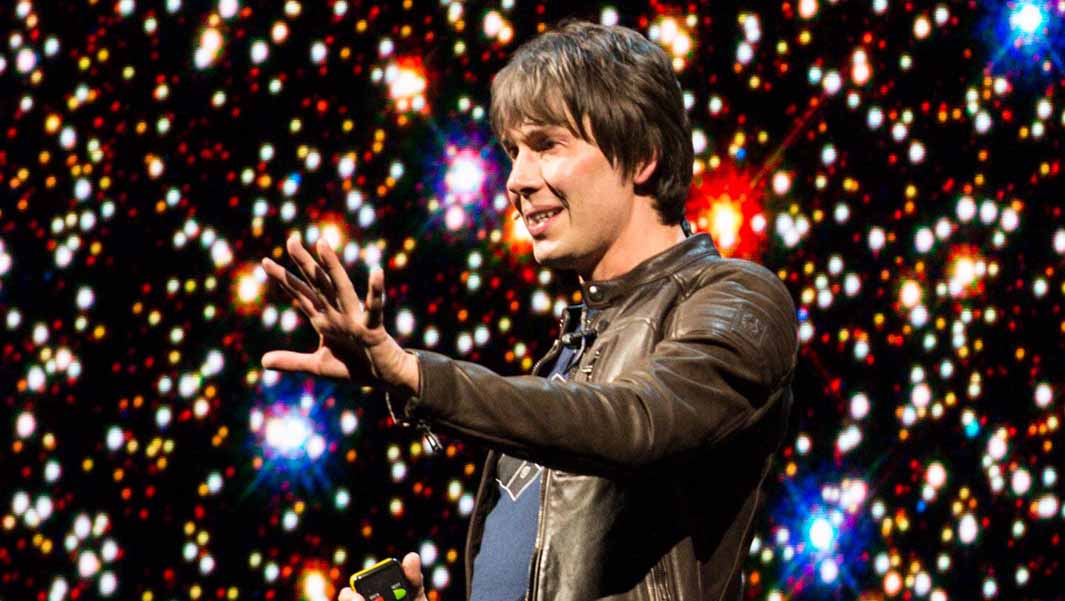Brian Cox smashes live science show record with his tour Universal

We recently sat down with physicist Professor Brian Cox at the Science Museum, London, to discuss his new record for his live science tour, Universal: Adventures in Space and Time. The show broke the record for the most tickets sold for a science show with 11,433 people attending The Arena Birmingham, UK.
Cox has beaten his own record, which he achieved at the SSE Arena, Wembley, in London, UK, on 26 May 2017, with 8,787 in attendance.
He also holds the record for the most tickets sold for a science tour in total, achieving 158,589 for his tour throughout the UK between 21 September 2016 and 28 April 2017. Due to the initial success of the tour with 48 different appearances throughout the UK, additional dates were added in larger stadium venues throughout 2017.

So we decided to talk to Brian about his record, inspirations, and all things science.
How does it feel to break this record again?
It’s gratifying. What it tells you is that there is a big audience for real science. If it was 1,000 people, or 1,500 people, it’s real cosmology or astronomy geeks, but if you’re talking about 11,000 people it means families are coming.
I had a question a few nights ago from a four-and-a-half-year-old. Then we also had a question from someone who came on their 90th birthday. That’s the difference when you’re talking about very big audiences, it’s the spread of people.

What actually happens at the show?
The show itself, at one level, is an astronomy and cosmology show and it is answering those very simple questions of "how old is the universe?" and "how did life begin?". But at that deeper level, I hope, it’s quite an emotional, resonant show.
Because the question for me which is the most interesting question you can ask is "what does it mean to live incredibly meaningful lives in a meaningless universe?", that’s right at the heart of the show.
What’s wonderful, is when you have 11,000 people thinking about that, you get a very interesting atmosphere. In one of these big areas where most people just sing and dance and bounce up and down.

Who’s influenced you?
Carl Sagan springs to mind for me. I was 10 or 11 years old when Cosmos came on television. Sir Patrick Moore, James Burke... Richard Feynman.
Richard Feynman is someone who I think becomes a hero to every undergraduate physicist. He was a science communicator, a great promoter of science, a great teacher – but also a Nobel Prize winning physicist. That combination is rare.
Also I should say Stephen Hawking. A Brief History of Time came along for me at that time when I was just thinking about university and thinking about really wanting to be a physicist. It’s a tremendously inspiring book.

What would you say to people inspired by you to pursue science?
When I go into schools, people say "how do you become a scientist?". It’s two things; enthusiasm and a bit of work.
I always found maths quite a struggle, I had to work at maths. If you want to be a physicist or a cosmologist, you need to be able to do it to a certain level. It’s a combination of inspiration and enjoyment – you’ve got to enjoy it.
Anyone can do it. In the same way not all musicians are Beethoven, you don’t have to be some kind of prodigy to be a scientist. There are thousands, hundreds of thousands, of scientists across the world – and they’re just ordinary people who are interested and did a bit of hard work.
You can be a scientist if you want to, and you’ll think you’ll enjoy it.
Professor Brian Cox – Universal: Adventures in Space and Time is on sale now.
If you enjoy learning about science, Guinness World Records 2020 contains loads of interesting science facts, including space, tech and engineering.



